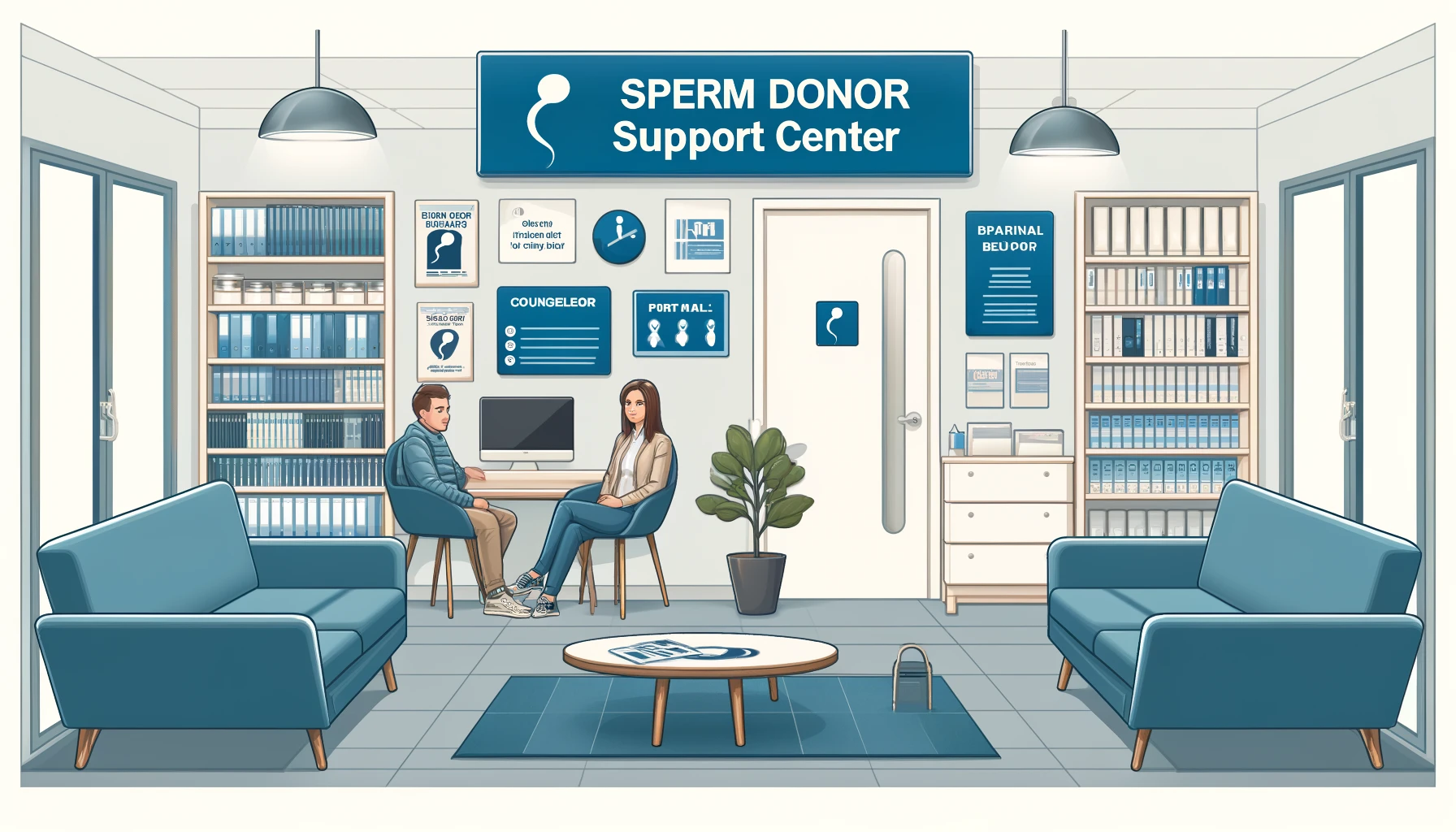For many couples, the struggle to conceive can be a stressful and emotional experience. However, issues around infertility are incredibly common. Around one in ten couples find it difficult to get pregnant and there are a range of conditions and lifestyle choices that can make it harder to expand your family. If you have been having unprotected sex for a year without getting pregnant, it is important to speak to your doctor. There are a range of fertility treatments available through the NHS along with specialist advice and support.
These are some of the most frequent causes of infertility across the UK.
1. Polycystic Ovary Syndrome (PCOS)
PCOS impacts a woman’s hormone levels. Women’s ovaries produce oestrogen and progesterone to regulate the menstrual cycle, they also produce a small level of a male hormone called androgen. Women suffering from PCOS produce a higher than usual level of androgen. This can cause irregular menstrual cycles, excessive hair growth, acne, and a range of intrusive symptoms. A key feature of PCOS is the growth of cysts within the ovaries, this combined with a disrupted menstrual cycle can make it harder for women to get pregnant. Fertility drugs like Clomid can help to address hormonal imbalances and help women with PCOS to conceive. Surgery to remove cysts may also be required in some cases.
2. Irregular Ovulation
Ovulation is an essential part of conception – this is the production of an egg that goes on to be fertilised by a sperm cell. Women who suffer from irregular ovulation face a much larger chance of fertility problems. Although PCOS is a common cause of irregular ovulation, issues with the pituitary gland– which is responsible for producing reproductive hormones – can also be to blame. Irregular ovulation is the cause of infertility in around 25% of cases. Tracking your ovulation frequency using ovulation tests can help to confirm any irregularities in your cycle. But you should speak to your GP if you have ongoing concerns. Fertility drugs can often be used to help stimulate ovulation in these cases.
3. Tubal Infertility
Tubal infertility is caused by the damage or absence of the fallopian tubes. Disease, damage, scarring, and obstruction can all contribute to tubal infertility. This prevents the egg from reaching the sperm or visa versa. It can also lead to ectopic pregnancy, when misshapen or damaged tubes are small enough to let sperm pass but not the egg. Tubal infertility can be caused by endometriosis, pelvic inflammatory disease, abdominal surgery, and prior ectopic pregnancy. Many women do not discover this problem until they are already undergoing fertility treatment and surgery can often be used to repair obstructions or damage.
4. Endometriosis
Endometriosis is an often-painful condition where the specialised tissue that lines the womb starts to grow in other places, typically on the ovaries and fallopian tubes. This can cause scarring and inflammation, making it more difficult to get pregnant. The advice for women suffering with endometriosis is, where possible, to try and conceive earlier, as after 35 the odds of conception decrease dramatically. Surgical removal of scar tissue is one treatment option which may also be used alongside other fertility treatments, like IVF.
5. Uterine Abnormalities
The uterus is the organ that houses your growing baby and a misshapen or malformed uterus can make it harder to get pregnant or to carry a baby to term. A uterine septum (separate uterus) is one of the most common uterine conditions that impacts fertility. It is congenital, which means it is present from a woman’s birth. In this condition, a band of fibrous tissues separates or partially separates the uterus. This increases the chances of miscarriage or before-term labour. The good news is that the condition can usually be treated with minor surgery.
6. Egg Quality
Egg quality is a key aspect of fertility and all of our eggs decline in quality as we get older. Although you are born with all of the eggs you will release in your lifetime, each egg matures only when it is set to be released. As we get older, the potential for abnormal DNA within the maturing egg cell becomes higher, increasing the likelihood of miscarriage and genetic mutations. All women have some abnormal eggs, but once a woman is over 40, up to 80% of her eggs may be abnormal. There is no direct test for egg quality. But a fertility specialist can advise you on your level of egg reserves and potential fertility treatments. For women who are looking to grow their family later in life, egg freezing may be an option.
7. BMI
Female fertility is affected by many lifestyle factors but being over or underweight is one of the biggest barriers to fertility. An unhealthy body weight can make it four times harder to conceive and increases the risk of miscarriage six-fold. Being extremely over or underweight can also cause the pituitary gland to malfunction and contribute to irregular ovulation. The good news is, for many people, this is one of the fertility issues that you can control through lifestyle choices. Speak to your doctor about the changes you can make to achieve a healthy weight for fertility.
8. Unknown Cause
The sad reality is that sometimes we don’t know what causes infertility. About 5 to 10% of women who undergo fertility treatment experience normal fertility tests or exhibit only minor abnormalities that should not result in infertility. Called unexplained fertility and it can be devastating for women who are seeking answers in their struggle to conceive. Unexplained fertility is often treated conservatively at first with fertility drugs and artificial insemination. Women who are over 35 or suffer further complications may be offered IVF.
7. Uterine Fibroids
A uterine fibroid is a benign tumour that grows within the uterus. They often appear during a woman’s fertile years and they can range in size and severity, from the size of a grain of rice to large growths that distort or enlarge the uterus. Symptoms can include heavy menstrual bleeding and abdominal pain. Occasionally, large or awkwardly placed fibroids can make it harder to get pregnant and increase the chances of miscarriage. Treatment to shrink or reduce fibroids or minor surgery can reduce the risks associated with fibroids and pregnancy.
9. Autoimmune Disorders
Autoimmune disorders are a collection of serious diseases that can impact almost every organ in the body. Because of the widespread impact on overall health, women suffering from autoimmune disorders, like rheumatoid arthritis and lupus, can find it harder to conceive. Autoimmune disorders can also increase the likelihood of miscarriage and other pregnancy complications, so women with one of these conditions may require specialist treatment throughout pregnancy. If you are planning to conceive and suffering from an autoimmune disorder, it’s sensible to seek advice from your doctor before trying for a baby.
10. Infections
Infections are a common cause of infertility and can cause structural damage to the reproductive organs. Sexually transmitted diseases (STDs) like chlamydia and gonorrhoea may lead to lasting issues and can be symptomless for women – so it’s important to schedule regular STD testing. Pelvic inflammatory disease (PID) is another infection that can cause problems with fertility. This impacts the upper reproductive system – fallopian tubes, uterus, and ovaries – and can be caused by surgical complications. Most infections are treatable with proper care, but it’s important to report persistent abdominal pain to your doctor.







